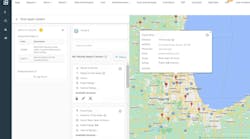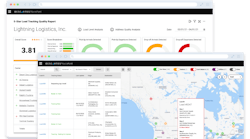LONG BEACH, CA. BSR has unveiled a new tool that it said will help fleet owners assess the impact of their vehicles on their climate and sustainability efforts.
The Fuel Tool is part of the company’s Future of Fuels initiative and was introduced at the ACT Expo clean fleet event.
According to BSR, leading fleets such as UPS, Walmart, PepsiCo, and The Coca-Cola Co. have been testing the tool for the past 18 months. It will provide “data for fleet owners to measure the average climate emissions for the technology they use, understand the full range of social and environmental impacts, and implement practices to get the results they want from their fleet and suppliers.”
BSR said the Fuel Tool can be used for:
Purchasing vehicles: Most fleets have the tools to understand specifications of their current diesel vehicles or alternative vehicles they might consider. With the Fuel Tool, they can now compare the climate emissions benefits of these technologies. For example, a fleet owner in Texas might want to replace diesel tractors with compressed natural gas. That fleet owner can use the Fuel Tool to understand the average climate emissions from current trucks in the fleet, and those of various natural-gas vehicle options with different efficiencies under consideration.
Setting expectations with suppliers: In the emerging world of clean fuel, competing claims by suppliers make it difficult to understand options. With the Fuel Tool, a company can understand the high-, medium-, and low-impact sources of each fuel type and the practices that avoid the worst impacts. For example, a fleet owner might commit to renewable diesel and seek suppliers that can offer sustainably certified canola oil or even lower-impact fuel from used cooking oil.
Determining fleet targets: Companies already set growth, efficiency, and cost-reduction goals—and, increasingly, they are also setting fleet-efficiency and emissions targets. The Fuel Tool gives fleet owners the ability to choose the combination of efficiency and alternative fuel vehicles that is best for them.


